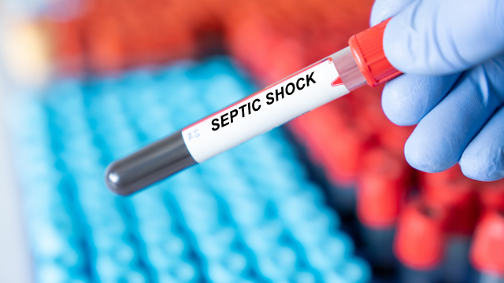Vivacelle Bio Launches Phase III Clinical Trial for VBI-S to Treat Hypovolemic Septic Shock
July 25, 2024
Source: drugdu
 294
294
By Don Tracy, Associate Editor
The trial is expected to include 40 patients across the United States who haven’t responded adequately to standard hypovolemic septic shock treatments and are on vasopressors.
 Vivacelle Bio has launched a Phase III clinical trial for its leading therapeutic candidate, VBI-S, designed to treat hypovolemic septic shock. According to the company, the trial will be conducted across seven major septic shock treatment centers in the United States, which include some of the biggest septic shock treatment centers in the country. Investigators seek to compare VBI-S and standard of care (SOC) to SOC alone in a 1:1 ratio.
Vivacelle Bio has launched a Phase III clinical trial for its leading therapeutic candidate, VBI-S, designed to treat hypovolemic septic shock. According to the company, the trial will be conducted across seven major septic shock treatment centers in the United States, which include some of the biggest septic shock treatment centers in the country. Investigators seek to compare VBI-S and standard of care (SOC) to SOC alone in a 1:1 ratio.
"Initiation of our Phase III trial is a significant achievement for our team following years of dedicated work developing our phospholipid nanoparticle technology platform," said Harven DeShield, PhD, JD, MSc, CEO, Vivacelle, in a press release. "Based on our excellent Phase II results, and the positive interaction with the FDA affirming our Phase III design, we are excited to initiate this pivotal trial of VBI-S to investigate its ability to improve blood pressure and reverse organ failure in hypovolemic septic shock, an area of immense need, which remains underserved by the current standard of care. We are grateful for the ongoing support from the U.S. Department of Defense and the NIH, and we look forward to working with the dedicated medical professionals and researchers across the various sites to advance this important clinical trial."
This open label, randomized, controlled trial, which has been cleared by the FDA, will include 40 patients who have not responded adequately to standard treatments and are on vasopressors. The trial will also enroll 406 patients with a SOFA score >/= 5 who meet additional inclusion for a 48-hour treatment period. The primary endpoint of the trial is an increase in the mean arterial blood pressure (MAP) by at least 10 mmHg with a target of 60-65 mmHg. Vivacelle stated that patients in this trial will have failed attempts to raise blood pressure to a survivable level using standard fluids and will be on vasopressors, potentially resulting in life-threatening complications.
Previously, Vivacelle’s Phase IIa trial demonstrated 100% efficacy in achieving the primary endpoint of raising MAP by at least 10 mmHg and improving patient survival from 10% to 70% without severe drug-related adverse effects. Full results were published in The Lancet eClinicalMedicine this past February.
VBI-S is based on Vivacelle's phospholipid nanoparticle technology, which works to redistribute nitric oxide to increase blood pressure in septic shock patients. The company believes that it has the potential to be the first successful treatment of septic shock that is mediated primarily by overproduction of nitric oxide. Previous research has suggested that endogenously produced nitric oxide plays a key role in the pathogenesis of septic shock.1
"Treating patients undergoing septic shock remains one of the greatest challenges in the U.S. healthcare system and poses an even greater problem in other parts of the world amongst adult and pediatric patients. Given this need, we welcome the opportunity to continue our work with the Vivacelle team in their efforts to bring innovation to the front lines of critical care patient treatment," said Michael Moncure, MD, FACS, professor department(s) of Surgery of University Health/Truman Center, UMKC School of Medicine, in the press release.
The study is funded by the Naval Medical Research Command (NMRC) – Naval Advanced Medical Development (NAMD) program via the Medical Technology Enterprise Consortium (MTEC).
Read more on
- Gan & Lee Pharmaceuticals’ new PROTAC drug GLR2037 tablets have been approved for clinical trials to enter the field of prostate cancer treatment March 3, 2026
- AideaPharmaceuticals plans to raise no more than 1.277 billion yuan through a private placement to focus on the global clinical development of innovative HIV drugs March 3, 2026
- Giant Exits! Its Star Business Acquired March 3, 2026
- Focusing on cardiovascular and cerebrovascular diseases! OpenMediLead Medical Intelligence Dual Engines Launch Internal Testing, Connecting Drug Development and Clinical Diagnosis in a Closed Loop March 3, 2026
- Innovent Biologics Announces Approval of New Indication for BTK Inhibitor “Pitubrutinib” in China March 3, 2026
your submission has already been received.
OK
Subscribe
Please enter a valid Email address!
Submit
The most relevant industry news & insight will be sent to you every two weeks.



